11 Jul 13 | Asia and Pacific
 In an interview with the UK’s Press Gazette this month, Lal Wickrematunge, brother of murdered Sri Lankan newspaper editor Lasantha Wickrematunge, lamented the self-censorship of his country’s press, and warned that UK hacks should fight for their own freedom of speech as an example to others, saying “Those who are in safer climates must keep the drum beating because these are the standards that other journalists in troubled areas look to.” Padraig Reidy writes
In an interview with the UK’s Press Gazette this month, Lal Wickrematunge, brother of murdered Sri Lankan newspaper editor Lasantha Wickrematunge, lamented the self-censorship of his country’s press, and warned that UK hacks should fight for their own freedom of speech as an example to others, saying “Those who are in safer climates must keep the drum beating because these are the standards that other journalists in troubled areas look to.” Padraig Reidy writes
The Sri Lankan regime is not noted for its commitment to media freedom, with Reporters Without Borders declaring the president and his brother, the defence minister “predators of the press” in May 2013.
Wickrematunge’s comments echoed the response of the The Editors’ Guild of Sri Lanka to Lord Justice Leveson’s proposals for press regulation. In a statement in response to Lord Justice Leveson’s recommendations, the island’s editors said:
“The almost draconian legislature contemplated in the United Kingdom would serve oppressive governments around the world, and especially in the Commonwealth with a convenient example to maintain tight controls over an independent media.
“In the future, any statements from the British Government on the freedom of the press would sound hollow in the face of such legislation.”
They were not wrong. The government of President Mahinda Rajapaksa wasted little time in drafting a code of media ethics designed to stifle country’s already under siege press. Draft guidelines were released in June.
In very best Leveson language, the authorities stressed that the restrictions aimed “to ensure that the Electronic and Print media and Websites in Sri Lanka are free and responsible and sensitive to the needs and expectations of the receivers of the message it sends out whilst maintaining the highest standards of journalism, and to uphold the best traditions of investigative journalism in the public interest, unfettered by distorting commercialism or by improper pressure or by narrow self-interests which are against the bare norms of media freedom.”
The code then went on to ban everything, from information that could damage the foreign relations, to stories containing “details of a person’s family life, financial information, race, caste, religion, sexual orientation, physical or mental illness or disability and one’s home or family and individuals in hospitals unless it has a direct relevance to the public interest.”
There is some confusion about the status of this new code. Sri Lanka’s media minister Keheliya Rambukwella, has said that the code is not about to made a law, but in the same breath suggested that it was to be introduced because of the absence of a criminal defamation law. President Rajapaksa meanwhile, suggested that editors write their own code, adapted from the government’s.
Despite this, it’s clear that the government is firing warning shots at the newpapers’ bows to remind them of their limits.
Sri Lankan journalists are looking ahead to the Commonwealth Heads of Government meeting in Colombo in November. While British Channel 4 News and Australian ABC journalists will be wondering if they will even allowed into the country, after the president took umbrage at their coverage of his brutal final push in the civil war with the Tamil Tigers, Sri Lankans will be wondering if, post-Leveson, David Cameron will be able to look the likes of Rajapakse in the eye and talk about press freedom.
11 Jul 13 | In the News
INDEX EVENTS
18 July New World (Dis)Order: What do Turkey, Russia and Brazil tell us about freedom and rights?
Index, in partnership with the European Council on Foreign Relations, is holding a timely debate on the shifting world order and its impact on rights and freedoms. The event will also launch the latest issue of Index on Censorship magazine, including a special report on the multipolar world.
(More information)
CHINA
Censoring the News Before It Happens
Every day in China, hundreds of messages are sent from government offices to website editors around the country that say things like, “Report on the new provincial budget tomorrow, but do not feature it on the front page, make no comparisons to earlier budgets, list no links, and say nothing that might raise questions”; “Downplay stories on Kim Jung-un’s facelift”; and “Allow stories on Deputy Mayor Zhang’s embezzlement but omit the comment boxes.” Why, one might ask, do censors not play it safe and immediately block anything that comes anywhere near offending Beijing? Why the modulation and the fine-tuning?
(New York Review of Books)
EGYPT
Egypt, the military and the media: Worse yet to come?
After the fall of Egypt’s Islamist president this month, security officials shut down media linked to the Muslim Brotherhood. With a history of biased media and an increasingly divided nation, the future Egypt looks grim. Shahira Amin reports
(Index on Censorship)
GLOBAL
Fine words on open government don’t match actions
From America to Azerbaijan, leaders have pledged themselves to a new era of openness and transparency. So why are whistleblowers and journalists still punished, asks Mike Harris
(Index on Censorship)
GHANA
Freedom of Speech and the Supreme Court of Ghana
Not long ago a great Katakyie by the name of Ken Kuranchie was incarcerated for standing for what he believes in i.e. Freedom of Speech! He was summarily convicted by the Supreme Court for daring to question some of the judgments of the Justices and going on to criticize the basis upon which some of the decisions in the august court were made.
(Ghana Web)
INDIA
Is India about to gets its own PRISM?
Two surveillance entities are being set up to monitor Indian citizens’ communications, Mahima Kaul writes
(Index on Censorship)
TUNISIA
Gobvernment should create jobs, not regulate religious behavior
The number of believers in Tunisia seems to increase dramatically during the month of Ramadan and decrease suddenly afterwards. It is as if praying is limited to this particular part of the year, when even those who are normally heavy smokers or drinkers become outraged when they see their fellow sinners engaging in such activities. Official policies seek to reinforce this yearly change in behavior, but the government must realize that instilling religious morals must not take priority over ensuring the welfare of its people.
(Tunisia Live
UNITED KINGDOM
Freedom of speech is not freedom to spin
Free speech does not imply the freedom to mislead. We want our media to be free, but also honest and reliable.
(The Conversation)
UNITED STATES
Arch Insurance Group launches libel insurance for bloggers
Arch Insurance Group is launching a new insurance program that will protect bloggers against libel and copyright infringement lawsuits.
(New York Business Journal)
University of Alabama at center of free speech debate
A pro-abortion rights student organization at the University of Alabama and a civil liberties group have asked the university to re-evaluate its grounds-use policy, arguing that it is contradictory and unconstitutional.
(Tuscaloosa News)
SEC Finally Permits Free Speech for Hedge Funds, VCs, and Entrepreneurs
Today is finally the day that the Securities and Exchange Commission — one year and three months after it was instructed to do so by the bipartisan Jumpstart Our Business Startups (JOBS) Act signed by President Obama — lifted the ban on advertising and communication to and from hedge funds and the private equity and venture capital community. Lifting these archaic rules is a victory for entrepreneurs, all types of investors, and, most importantly, the First Amendment.
(Open Market)
FROM INDEX ON CENSORSHIP MAGAZINE
Global view: Who has freedom of expression?
Freedom of expression is a universal, fundamental human right. But who actually has access to free expression? Index CEO Kirsty Hughes looks at the evidence.
(Index on Censorship)
Global view: Who has freedom of expression?
Freedom of expression is a universal, fundamental human right. But who actually has access to free expression? Index CEO Kirsty Hughes looks at the evidence.
(Index on Censorship)
The multipolar challenge to free expression
As emerging markets command influence on the international stage, Saul Estrin and Kirsty Hughes look at the impact on economics, politics and human rights.
(Index on Censorship)
News in monochrome: Journalism in India
The media’s infatuation with a single narrative is drowning out the country’s diversity, giving way to sensationalist reporting and “paid for” news. But, says Bharat Bhushan, moves towards regulation could have a chilling effect too
(Index on Censorship)
Censorship: The problem child of Burma’s dictatorship
Writer and artist Htoo Lyin Myo gives his personal account of working under government censorship in Burma
(Index on Censorship)
Previous Free Expression in the News posts
July 10 | July 9 | July 8 | July 5 | July 4 | July 3 | July 2 | July 1 | June 28 | June 27
10 Jul 13 | Egypt, Middle East and North Africa, Politics and Society
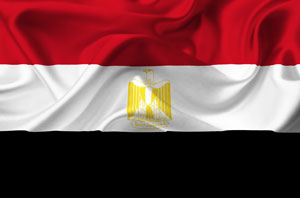
Image: Shutterstock
After the fall of Egypt’s Islamist president this month, security officials shut down media linked to the Muslim Brotherhood. With a history of biased media and an increasingly divided nation, the future Egypt looks grim. Shahira Amin reports
(more…)
10 Jul 13 | Asia and Pacific, Digital Freedom, India
Two surveillance entities are being set up to monitor Indian citizens’ communications, Mahima Kaul writes
(more…)
10 Jul 13 | Azerbaijan News, Politics and Society
From America to Azerbaijan, leaders have pledged themselves to a new era of openness and transparency. So why are whistleblowers and journalists still punished, asks Mike Harris
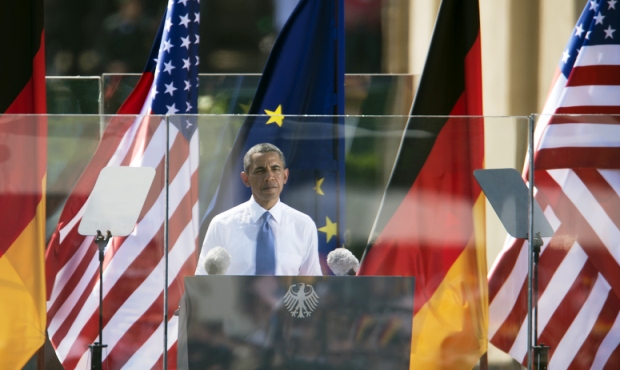
Is Barack Obama committed to transparency? (pic Gonçalo Silva/Demotix)
(more…)
10 Jul 13 | In the News
INDEX EVENTS
18 July New World (Dis)Order: What do Turkey, Russia and Brazil tell us about freedom and rights?
Index, in partnership with the European Council on Foreign Relations, is holding a timely debate on the shifting world order and its impact on rights and freedoms. The event will also launch the latest issue of Index on Censorship magazine, including a special report on the multipolar world.
(More information)
BAHRAIN
Allowing freedom of expression and peaceful assembly is the only way to stop violence
Bahrain opposition parties are following with great concern the deteriorating security situation in Bahrain, by which the authorities are dragging the country into the unknown.
(ABNA.co)
BURMA
Burma’s lower house passes restrictive press law
Going against its own Press Council, parliamentarians in Burma have passed a restrictive new press law that will restrict freedom of the press, Mike Harris reports.
(Index on Censorship)
CHINA
Sina Weibo Credit System Has Docked 200k Users, Dealt with 15 Million Complaints
A little over a year ago, in response to mounting concerns about the spread of harmful rumors on its platform, Sina Weibo implemented a “credit” system.
(Tech in Asia)
FRANCE
French First lady forced to pay legal costs after dropping libel action against journalist who claimed two politicians ‘shared’ her as a mistress
French first lady Valerie Trierweiler was today forced to pay legal costs to a writer who accused her of being the ‘shared’ mistress of two married politicians.
(Daily Mail)
MOROCCO
Free speech sidelined in Morocco
Despite promising reform and introducing a new constitution in 2011, Morocco’s treatment of dissidents indicates the changes were just window dressing, Samia Errazzouki writes
(Index on Censorship)
RUSSIA
Journalist Akhmednabi Akhmednabiev killed in Russia
Akhmednabi Akhmednabiev, a well-known Russian journalist who reported on human rights violations in the Caucasus, was shot dead near his house around 7am local time today. Andrei Aliaksandrau reports
(Index on Censorship)
Russian Lawmaker to Create Defense From Gays Group
A Siberian regional lawmaker who has advocated the flogging of gay people in public said Tuesday that he intends to set up a group to protect Russians from homosexuals.
(RiaNovosti)
Russia drops curtain on Bolshoi director
The Bolshoi Theater, racked by feuds, scandals, criminal charges and tantrums as over-the-top as its recent extravagant renovation, lost its general director Tuesday when he was fired by Russia’s culture minister.
(Washington Post)
TUNISIA
Bare-chested street actors accused of indecency in Tunisia
Some Tunisian street performers, whose bare chests prompted an attack by audience members, have been released after being charged with public indecency.
(UPI)
TURKEY
European Commission ‘concerned’ by detentions targeting Gezi protests’ pioneers
The European Union’s commissioner for enlargement, Stefan Füle, has expressed concern over the detention of Taksim Solidarity Platform members who were involved from the start of the Gezi Park protests.
(HUrriyet Daily News)
UNITED KINGDOM
IPSO proposal an opportunity to break Leveson deadlock
The industry’s proposal for a new press regulator is not perfect. But it’s a starting point for proper discussion on the future of Britain’s free press, says Padraig Reidy
(Index on Censorship)
Rizzle Kicks ‘called libel lawyers’ over John Terry, Jeremy Kyle lyrics
Rizzle Kicks have mocked John Terry and Jeremy Kyle in their latest song.
The rap duo unveiled their new track ‘Lost Generation’ yesterday (July 8), which makes reference to Chelsea footballer Terry’s race trial.
(Digital Spy)
UNITED STATES
Ex-Bengals cheerleader to continue testimony in libel lawsuit over posts on gossip website
A former Cincinnati Bengals cheerleader suing a gossip website for alleged defamation was expected to continue testimony for a second day in her lawsuit’s retrial.
(Washington Post)
FROM INDEX ON CENSORSHIP MAGAZINE
Global view: Who has freedom of expression?
Freedom of expression is a universal, fundamental human right. But who actually has access to free expression? Index CEO Kirsty Hughes looks at the evidence.
(Index on Censorship)
Global view: Who has freedom of expression?
Freedom of expression is a universal, fundamental human right. But who actually has access to free expression? Index CEO Kirsty Hughes looks at the evidence.
(Index on Censorship)
The multipolar challenge to free expression
As emerging markets command influence on the international stage, Saul Estrin and Kirsty Hughes look at the impact on economics, politics and human rights.
(Index on Censorship)
News in monochrome: Journalism in India
The media’s infatuation with a single narrative is drowning out the country’s diversity, giving way to sensationalist reporting and “paid for” news. But, says Bharat Bhushan, moves towards regulation could have a chilling effect too
(Index on Censorship)
Censorship: The problem child of Burma’s dictatorship
Writer and artist Htoo Lyin Myo gives his personal account of working under government censorship in Burma
(Index on Censorship)
Previous Free Expression in the News posts
July 9 | July 8 | July 5 | July 4 | July 3 | July 2 | July 1 | June 28 | June 27 | June 26
09 Jul 13 | Media Freedom, United Kingdom
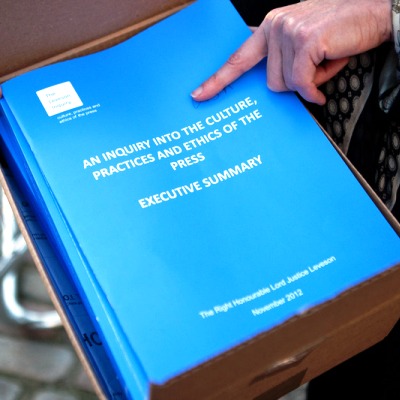 The industry’s proposal for a new press regulator is not perfect. But it’s a starting point for proper discussion on the future of Britain’s free press, says Padraig Reidy
The industry’s proposal for a new press regulator is not perfect. But it’s a starting point for proper discussion on the future of Britain’s free press, says Padraig Reidy
(more…)
09 Jul 13 | Russia
Akhmednabi Akhmednabiev, a well-known Russian journalist who reported on human rights violations in the Caucasus, was shot dead near his house around 7am local time today. Andrei Aliaksandrau reports
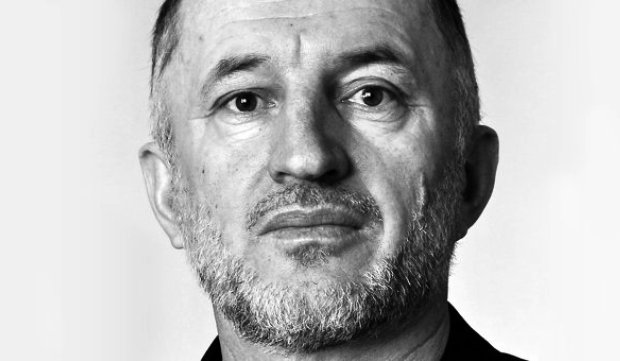
(more…)
09 Jul 13 | Asia and Pacific
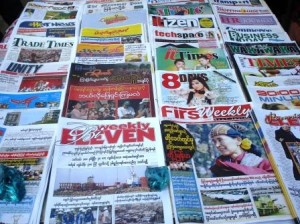
The number and range of media in Burma has proliferated
Going against its own Press Council, parliamentarians in Burma have passed a restrictive new press law that will restrict freedom of the press, Mike Harris reports.
On 4 July, Burma’s lower house of parliament (Pyithu Hluttaw) passed a restrictive press law that will restrict freedom of the press and kept in place many of the most draconian elements of the existing legal framework.
The Printing and Publishing Enterprise Law, drafted by the Ministry of Information, renews the government’s power to license newspapers, news websites and foreign news agencies and has strict rules on obscenity and the incitement of public disorder. The Ministry of Information’s draft law has been viewed by members of Burma’s fledgling press council as an attempt to undercut their attempts to formulate a new press law. Burma’s Press Council was founded by the government in October 2012 with the intention that journalists, their trade unions, media owners and civil society stakeholders should develop a new press law. After a disappointing first attempt at reform, the Press Council is currently working on a second draft of its law.
In the meantime, the Ministry of Information drafted its own press law, aimed at undercutting the more open and inclusive process undertaken by the Press Council. While abolishing some of the prison sentences under the old Printing and Publishing Enterprise Law (1962), the law keeps criminal sanctions as well as excessively high fines for media organisations breaching the law.
After the publication of this law, Burma’s increasingly vocal civil society launched a public campaign to prevent the adoption. The Press Council sent letters to the president and the Speaker of Parliament setting out their objections to the proposals. It seemed that parliament was more responsive to the demands of civil society when after coordinated pressure, the Chair of Parliament’s House of Representatives Sports, Culture and Public Relations Development Committee (and Vice-Chair of the Union Solidarity and Development Party), Thura Aye Myint, said the law needed reflecting upon and it would not be debated in this session of parliament. Yet, just three months later, the law was passed by the lower house.
In response, members of the Press Council have now threatened to resign on mass. Eleven Myanmar reports that Zaw Thet Htwe, a member of the Myanmar Journalists Union (MJU), has expressed his disappointment with the bill stating:
“We opposed the press bill when it came out. Then, the minister met with the Press Council. Provisions on printing and publishing are also enshrined in the media bill drafted by the council. So we demanded those provisions be removed from the press bill. The ministry refused it and promised to amend some provisions. But it is not the same as they said when the bill was approved. We have to reconsider dealing with the ministry [altogether]”.
Burma’s upper house will now need to consider whether to pass the Ministry of Information’s restrictive law, or consider the Press Council’s proposals when they are finalised. If the Ministry of Information’s press law is passed, it will call into question how serious the government of Burma is in reforming its draconian legal landscape for freedom of expression.
09 Jul 13 | In the News
INDEX EVENTS
18 July New World (Dis)Order: What do Turkey, Russia and Brazil tell us about freedom and rights?
Index, in partnership with the European Council on Foreign Relations, is holding a timely debate on the shifting world order and its impact on rights and freedoms. The event will also launch the latest issue of Index on Censorship magazine, including a special report on the multipolar world.
(More information)
FROM INDEX ON CENSORSHIP MAGAZINE
Global view: Who has freedom of expression?
Freedom of expression is a universal, fundamental human right. But who actually has access to free expression? Index CEO Kirsty Hughes looks at the evidence.
(Index on Censorship)
Global view: Who has freedom of expression?
Freedom of expression is a universal, fundamental human right. But who actually has access to free expression? Index CEO Kirsty Hughes looks at the evidence.
(Index on Censorship)
The multipolar challenge to free expression
As emerging markets command influence on the international stage, Saul Estrin and Kirsty Hughes look at the impact on economics, politics and human rights.
(Index on Censorship)
News in monochrome: Journalism in India
The media’s infatuation with a single narrative is drowning out the country’s diversity, giving way to sensationalist reporting and “paid for” news. But, says Bharat Bhushan, moves towards regulation could have a chilling effect too
(Index on Censorship)
Censorship: The problem child of Burma’s dictatorship
Writer and artist Htoo Lyin Myo gives his personal account of working under government censorship in Burma
(Index on Censorship)
BURMA
Burma’s Press Council Threatens Resignation Over Media Rules
Members of Burma’s interim Press Council say they will resign if the newly minted Printing and Publishing Enterprise Bill is passed into law in its current guise.
(The Irrawaddy)
CHINA
State of the artist in China
“What can they do to me?” asks Ai Weiwei. “Who is afraid of Ai Weiwei?” sprays a young woman on city buildings in Hong Kong. You can hate him or love him but you can’t ignore Ai Weiwei.
(The Hindu)
GLOBAL
All the ways Google is asked to censor the web, in one handy chart
Google recently released statistics on all the legal requests it gets to censor the Web via its many services, from Search to YouTube. Now Sebastian Sadowski has created some handy visualizations of all the ways information is being censored — perhaps without you even realizing it.
(io9)
INDIA
To free the press or not to: the Indira govt debate?
The Indira Gandhi government feared Emergency and its various aspects, including the controversial family planning programme, would see the government “severely criticised” if press censorship was lifted in the run-up to the March 1977 Lok Sabha elections.
(Indian Express)
‘India has a strong culture for cinema’
Cinema is a movement that lets you enter the personal space of subjects without disturbing them and the art lies in then knitting a story around them, acclaimed French filmmaker Claire Denis said on Monday while addressing a news conference at the Film and Television Institute of India (FTII).
(Times of India)
IRAN
Iran’s Rouhani Set to Revamp Censorship?
Iranian President-elect Hassan Rouhani may be set to revamp the country’s censorship, according to a speech he delivered in Tehran.
(Israel National News)
MOROCCO
Free speech sidelined in Morocco
Despite promising reform and introducing a new constitution in 2011, Morocco’s treatment of dissidents indicates the changes were just window dressing, Samia Errazzouki writes
(Index on Censorship)
NEW ZEALAND
Critic claims censorship on Collins Wiki
Justice Minister Judith Collins’ office has become embroiled in a Wikipedia war with ministry critic Roger Brooking. Brooking is an outspoken critic of Collins and the Justice Ministry and was a prolific Wikipedia editor – now banned – under the username Offender9000.
(Southland Times)
RUSSIA
Guest Post: International solidarity with Russian civil society is crucial
Global action is needed to counter Putin’s crackdown on civil society, says Yuri Dzhibladze, president of the Center for the Development of Democracy and Human Rights
(Index on Censorship)
Russia to Develop ‘Code of Ethics’ for Film Industry
Veteran Russian directors Karen Shakhnazarov and Marlen Khutsiyev have been included in a working group charged with developing a code of ethics for the Russian film industry, an idea originally suggested by President Vladimir Putin.
(The Hollywood Reporter)
SINGAPORE
US ‘deeply concerned’ by Singapore Internet rules
The United States said Monday it was “deeply concerned” by what it called a “new restrictive” law in Singapore for licensing online news websites.
(Inquirer)
TUNISIA
Hollande’s Tunisia Visit Upsets
Some Civil Society Advocates
While many observers expected the visit of French President Francois Hollande to Tunisia to be postponed, others believed that its timing was counterproductive in the sense that it signaled indirect support for the ruling troika.
(Al Monitor)
UNITED STATES
Top Attorney Floyd Abrams Has Defended Free Speech For Over 40 Years
Floyd Abrams is an ardent defender of free speech and a passionate proponent of the First Amendment. Except for the time that his 12-year-old daughter, now a federal judge, told her dad that she and some friends were going to an R-rated movie.
(NY1)
Coalition calls for veto of NJ media violence ‘disinformation bill’
The National Coalition Against Censorship, American Booksellers Foundation for Free Expression and the Center for Democracy and Technology sent a letter to New Jersey Governor Chris Christie today asking him to veto Senate Bill 2715, which would require the state’s Department of Education “to prepare and distribute informational pamphlets on how parents can limit a child’s exposure to media violence,” which includes video games, according to the text of the bill.
(Polygon)
Previous Free Expression in the News posts
July 8 | July 5 | July 4 | July 3 | July 2 | July 1 | June 28 | June 27 | June 26 | June 25
09 Jul 13 | Middle East and North Africa
Despite promising reform and introducing a new constitution in 2011, Morocco’s treatment of dissidents indicates the changes were just window dressing, Samia Errazzouki writes
Morocco’s King Mohammed VI announced a constitutional reform process during a 9 March 2011 speech, following popular protests organised by the 20 February Movement. Regime supporters and allies — France and the United States — hailed the move towards reform as “unprecedented.” Morocco was soon referred to as the “model for the region.”
But the government’s repression of freedom of expression has remained steadfast even after the new constitution.
Most recently, in March 2013 dissident rapperMouad Belghouat (alias El Haqed) was released from jail after he served his second, year-long prison sentence over his anti-regime lyrics, which were described as “undermining state authority.”
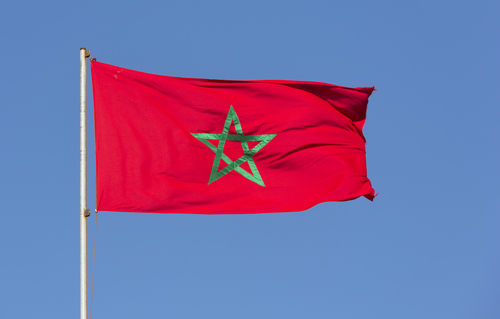 In February 2012, 18-year old Walid Bahomane was charged with “defaming Morocco’s sacred values” after he posted a caricature of Mohammed VI on Facebook. Even though he did not create the illustration, Bahomane was convicted and sentenced to one year in prison for the act of sharing the image.
In February 2012, 18-year old Walid Bahomane was charged with “defaming Morocco’s sacred values” after he posted a caricature of Mohammed VI on Facebook. Even though he did not create the illustration, Bahomane was convicted and sentenced to one year in prison for the act of sharing the image.
In the same month, Abdessamad Hidour, an activist with the 20 February Movement faced similar charges after a video of him criticising Mohammed VI was uploaded on Youtube. In the video, he likened Mohammed VI’s reign to colonialism and railed against his corrupt practices, landing him a three-year prison sentence.
These are only a few cases out of many that have drawn widespread attention over the nature of the charges as well as the expedited trials that landed all those charged in jail.
Morocco’s latest constitution supposedly grants the right to freedom of expression, but it still leaves room for repression.
The king stacked the constitutional reform deck by appointing the committee to undertake the work. The reforms introduced some liberalisation, but did not address demands for democratisation of the system. It’s an old trick dating to the 1960s when Morocco’s first constitution was drafted following its independence from France.
The latest version of the constitution incorporates human rights language and places greater attention on the legal protection of free speech, such as the following:
- Article 10 grants the opposition the “freedom of opinion, expression, and of assembly.”
- Article 25 states that “The freedoms of thought, of opinion and of expression under all their forms are guaranteed.”
- Article 28 addresses the press, “The freedom of the press is guaranteed and may not be limited by any form of prior censure.”
Out of context, these articles stand as testaments for what regime supporters describe as “landmark reforms.” However in scrutiny and in practice, these articles have proved to be futile. In Article 28, for example, immediately after stipulating the guarantee of freedom of the press, there is a caveat that leaves this article open to interpretation: “All have the right to express and to disseminate freely and within the sole limits expressly provided by the law, information, ideas, and opinion.” Immediately, “freedom of the press” is limited to a legal framework dictated by the regime and this interpretation has come into play in various recent trials where freedom of speech and press has been threatened, especially in instances when the monarchy has been the target of criticism.
The regime’s response to free speech cases following constitutional reform is swift and relatively consistent, indicating no clear break from its past policies. Despite these violations of freedom of expression, Moroccans continue to express their dissent in multiple media, from online publications to protests on the streets, indicating that the regime’s alleged “path toward reforming” is long and winding.
Samia Errazzouki is a Moroccan-American writer and co-editor of Jadaliyya’s Maghreb Page.
08 Jul 13 | Comment, Europe and Central Asia, In the News
Russia keeps adopting repressive laws that further restrict freedom of expression and other fundamental rights of its citizens, Andrei Aliaksandrau writes
President Vladimir Putin worked hard last Saturday, sacrificing his week-end to state affairs. He signed two laws, previously passed by the national parliament. The first one bans “propaganda of non-traditional sexual relationships”; it provides for heavy fines for “promotion of denial of traditional family values among minors.” The second law amends the Russian Criminal Code providing for up to one year in prison for “insult to religious feelings of believers.”
Adoption of both laws marks not only further deterioration of the freedom of expression situation in Russia, but also signals the country’s authorities ignore appeals from international community, human rights standards and their own international commitments.
Related
• Guest Post: International solidarity with Russian civil society is crucial
Last week Index together with 23 more human rights groups called the Parliamentary Assembly of the Council of Europe (PACE) to condemn the “homosexual propaganda” bans. We reminded about the decision of the UN Human Rights Committee that found prohibition of “homosexual propaganda” in Ryazan Region of Russia violating Article 19(2) and Article 26 of the International Covenant on Civil and Political Rights. The principles of that decision were later affirmed in the opinion of the Venice Commission, which considered that bans on “homosexual propaganda” are “incompatible with the ECHR and international human rights standards.”
On 27 June PACE called on Russia to reject the law. But only two days later President Putin inked it to show no one is allowed to interfere with his manner of ruling his “sovereign democracy.”
Another blow against the LGBT-community followed last Wednesday, when Vladimir Putin signed a law that bans adoption of Russian children by same-sex couples or even by citizens of countries where same-sex marriage is allowed.
One more legal act that received Putin’s signature on 3 July is the “anti-pirate” law aimed against web sites that illegally distribute copyrighted video content. It will come into force on 1 August 2013, despite criticism from key industry players. Leading web companies are concerned with provisions of the law that suggest corporate censorship.
“The law provides for a possibility of blocking of internet platforms by ISPs that we have always opposed to as it inevitably threatens resources of legal content distribution,” Svetlana Anurova, a representative of Google in Russia, told Digit.ru.
Russia keeps building repressive legislative network that restricts freedom of expression, as well as other fundamental rights. Previous legal initiatives brought to life included the notorious “foreign agent” law, aimed against NGOs that receive foreign funding, re-criminalisation of defamation, and creation of a blacklist of sites with “harmful” information under a pretext of child protection.
“Law-making the State Duma has been down to over the last year makes me question common sense of Russian MPs. It looks like they do believe they can regulate everything by laws, from street rallies to sexual relationships of citizens. Passing of such laws is an attempt to shift the focus of public attention from internal problems of Russia, people’s disaffection and questionable legitimacy of MPs themselves to search for enemies in ‘foreign agents’, LGBT community or ‘insulters’ of religious feelings,” Dmitry Makarov, a co-chair of the International Youth Human Rights Movement, told Index.
The scale and pace of passing repressive laws won the Russian State Duma a nickname of “a Crazy Printer.” And it does not seem to run out of paper and new ideas about what to restrict.

 In an interview with the UK’s Press Gazette this month, Lal Wickrematunge, brother of murdered Sri Lankan newspaper editor Lasantha Wickrematunge, lamented the self-censorship of his country’s press, and warned that UK hacks should fight for their own freedom of speech as an example to others, saying “Those who are in safer climates must keep the drum beating because these are the standards that other journalists in troubled areas look to.” Padraig Reidy writes
In an interview with the UK’s Press Gazette this month, Lal Wickrematunge, brother of murdered Sri Lankan newspaper editor Lasantha Wickrematunge, lamented the self-censorship of his country’s press, and warned that UK hacks should fight for their own freedom of speech as an example to others, saying “Those who are in safer climates must keep the drum beating because these are the standards that other journalists in troubled areas look to.” Padraig Reidy writes


 The industry’s proposal for a new press regulator is not perfect. But it’s a starting point for proper discussion on the future of Britain’s free press, says Padraig Reidy
The industry’s proposal for a new press regulator is not perfect. But it’s a starting point for proper discussion on the future of Britain’s free press, says Padraig Reidy

 In February 2012, 18-year old
In February 2012, 18-year old